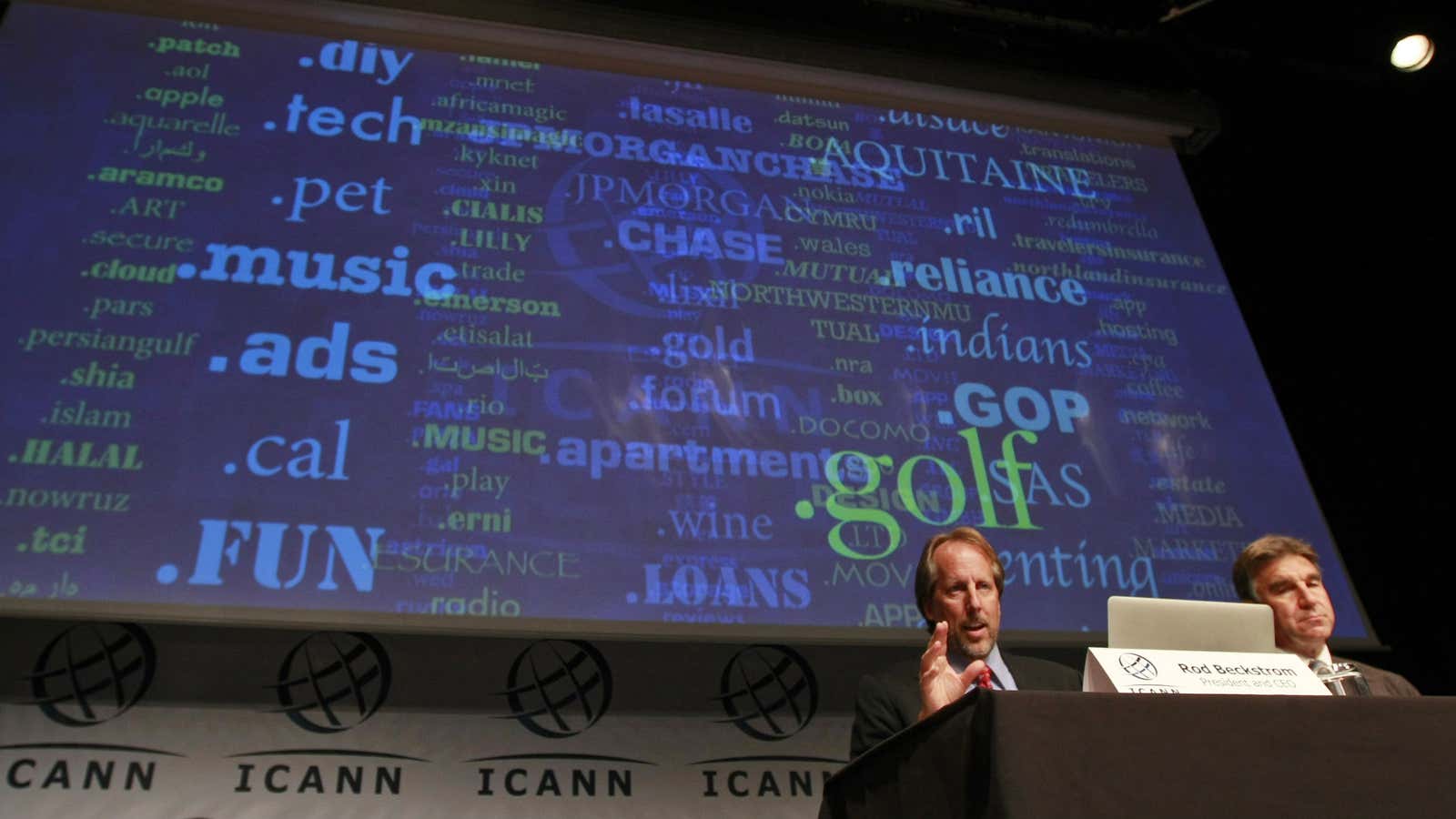On Jan. 29, 2014, you will be able to navigate over to your friendly neighborhood domain registrar and register a website on any (or indeed all) of nine new top-level domains (TLDs). So far, the English-language internet has gotten along just fine with a mere 22 TLDs, the best known of which are .com, .net and .org. Last week, the Internet Corporation for Assigned Names and Numbers (ICANN), which runs the internet’s addressing system, approved the first nine of some 1,400 new TLDs that are set to go live in the coming months. These are: .camera, .clothing, .lighting, .singles, .guru, .holdings, .equipment, .voyage, and .ventures.
Formally approved on Nov. 6, these domains aren’t the first new ones to roll out as part of ICANN’s new TLD policy. But they are the first in the familiar Latin-character based internet used by English speakers. The first four, approved last month, were Chinese, Russian and Arabic words for .online, .site, .game, and .web. Those will probably make some domain-squatters very rich. The same cannot be said of the new English-language domains.
The virtual land grab that isn’t
In theory, the new TLDs provide more options for web addressing. Someone with, say, a camera company will prefer to register its website at a .camera address than a .com one. The flaw, conventional wisdom has it, is that hundreds of new domain names will see a massive land grab. Big corporations, goes the argument, will be forced to register across every new domain to protect their trademarks. At the same time, wiley domainers—the term for people who buy common-noun domain names and wait for somebody to want to buy them—will gobble up acres of virtual real estate.
Conventional wisdom is likely to wrong. Companies keen on protecting their good names will indeed register across new domains, but at minimal expense; an address at many of the new TLDs costs only a few tens of dollars. Indeed, there is even a “sunrise period” of a few weeks during which only trademark owners are allowed to register their sites. After that, it’s simply a matter of redirecting back to one main site. (Try it: here’s google.info and walmart.tv.)
Domainers may indeed register vast tracts of new space. But they will find themselves sitting on fallow land composed of useless common nouns. Some argue that search, combined with a recent trend to repurpose country-level domains into quirky names (eg. in.ky), will render domains irrelevant. More importantly, the guy with a camera website is still going to want to register on the .com domain if he can come up with a decent name—it remains the most prestigious address at which to find a website. It it getting increasingly crammed, but there exists a healthy secondary market.

The reason is simple: People do not rush out to buy fabulous new houses in the middle of nowhere unless they have good reason to believe there’ll be others in the neighborhood soon (or unless they’re hermits). The .tv domain has steadfastly refused to set the world on fire despite an explosion in online video. As for .biz, it hosts even fewer websites than .nl, the country-level domain for Netherlands. No matter how much registrars push .lighting, it will remain a niche domain for a very specific set of business—if it takes off at all. Alas, .equipment is even more ugly.
Indeed, of the 1,400 new names, which ICANN refers to as “generic top-level domains,” only a handful are truly generic. Among them is .web, which has not yet been allotted. Its many suitors see it as the next .com—and will ensure that it is. But the vast majority are probably fated to remain like their .biz and and .travel predecessors. An exciting idea for speculators, but not much use to anyone else.
